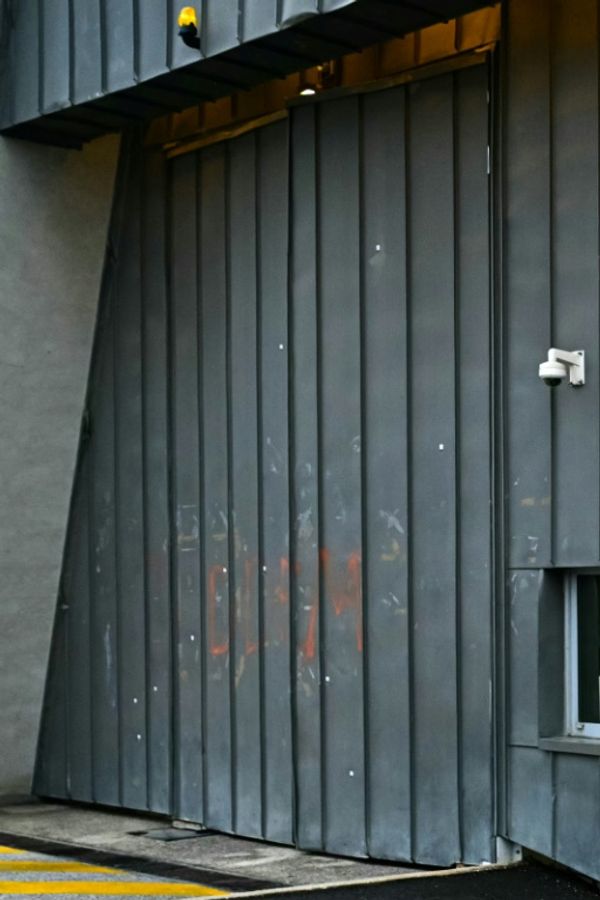The Chinese prisoner has a fearful expression as his Ukrainian captors train a video camera on him. He speaks in Mandarin, the common language of his homeland. His green uniform is like any regular soldier’s. But is it proof that China is fighting alongside the Russian army?
This is a hybrid war and while China has not disputed the facts, the boundaries of truth are cloaked in deniability. The incident – astutely publicised by Ukraine just as America is in a trade showdown with China – has illuminated the shadows of a very modern conflict.
President Volodymyr Zelensky said his troops captured two Chinese citizens after a skirmish in the Donetsk region of eastern Ukraine. They found identity documents, bank cards and other evidence of their nationality. In most armies that would be a severe security lapse.
Zelensky said his men engaged with a unit of six Chinese combatants. The fate of the other four was not mentioned. Andriy Kovalenko, a member of the National Security and Defence Council, called the captured fighters “mercenaries” but gave no more information.
One explanation is that the men are simply soldiers of fortune who caught a plane to Russia to escape boredom and penury at home. Just days ago, the correspondent of Le Monde in China, the highly experienced Harold Thibault, published an interview with a 37-year-old truck driver named “Fen” who went to seek adventure until he was wounded by a drone.
Back in China, sipping tea, he told Thibault that he did not care about the rights and wrongs of the war. A search of a popular Chinese social media app, Douyin, revealed 40 accounts of men who had joined the Russian forces. “Fen” said there were hundreds.
It is plausible that there are tens of thousands of trained soldiers hanging around in civilian life with not much to do. President Xi Jinping has spent heavily to modernise the People’s Liberation Army (PLA) but he has also ruthlessly thinned its ranks. It is a leaner force with less manpower and more warfighting technology.
That lends weight to a second explanation, which is that Chinese military intelligence is using mercenaries to collect battlefield information on tactics and weapons systems that the PLA wants. It has not fought a conventional ground war since 1979 when then paramount leader Deng Xiaoping ordered an invasion of Vietnam which ended in a fiasco.
So real-time observation in combat is priceless. The campaign in Ukraine, with its reliance on drones, cruise missiles, air defences, tracking and interception, is a model for the sort of warfighting the PLA would experience in an invasion of Taiwan.
In addition, battlefield conditions yield performance assessments which the Russians might prefer to keep secret even from their supposed friends. And it is clear from Zelensky’s statement that the six Chinese combatants were operating as an organised unit, presumably including Russian speakers for communications and perhaps eavesdropping.
China has supplied the Kremlin with significant quantities of machine tools, drone and turbojet engines and technology for cruise missiles, microelectronics, and nitrocellulose, which is used in rocket fuel, US officials in the Joe Biden administration said in April 2024.
A third and less subtle explanation is simply that China is staging a brazen, barely covert intervention in the war. It has history on this. A US diplomat in Beijing once told me that sometimes Chinese strategy is as subtle as the ancient arts of war taught by Sun Tzu but “sometimes it’s a kick in the face”.

In the Korean War of 1950 to 1953, Mao Zedong sent hundreds of thousands of “volunteers” to fight American, British and other forces under the United Nations flag who were defending capitalist South Korea. Among the mass casualties was Mao’s own son.
China also sent covert aid to North Vietnam and to Viet Cong guerrillas in South Vietnam, helped the Khmer Rouge take over Cambodia and waged a twilight struggle against both the Soviet Union and the West across Indochina until Deng called a halt to Cold War adventurism at the end of the 1970s.
Its leaders are well schooled in complexity and state deceit. So they will have been unworried when the Ukrainian foreign minister Andrii Sybiha summoned China’s chargé d’affaires in Kyiv “to condemn this fact and demand an explanation”.
“China is verifying the information with the Ukrainian side,” a spokesman for China’s foreign ministry, Lin Jian, told reporters.
“Let me stress that the Chinese government always asks Chinese nationals to stay away from areas of armed conflict, avoid any form of involvement in armed conflict, and in particular avoid participation in any party’s military operations.”
Unlike the words of President Trump, it would be wise to take this statement literally but not seriously.
Michael Sheridan, longtime foreign correspondent and diplomatic editor of The Independent, is the author of The Red Emperor published by Headline Press at £25.00
Apple flew 600 tons of iPhones from India to the US to ‘beat’ Trump’s tariff deadline
Trump administration to refer Maine to Justice Department over transgender participation in sports
Prince Harry pictured with wounded soldiers in surprise visit to Ukraine
Ukraine war live: UK pledges £450m after Zelensky sanctions Putin’s shadow fleet
Zelensky accuses Russia of systematically recruiting Chinese citizens for Ukraine war
Sun-drenched Canaries hit with snow ahead of Easter as tourists warned







